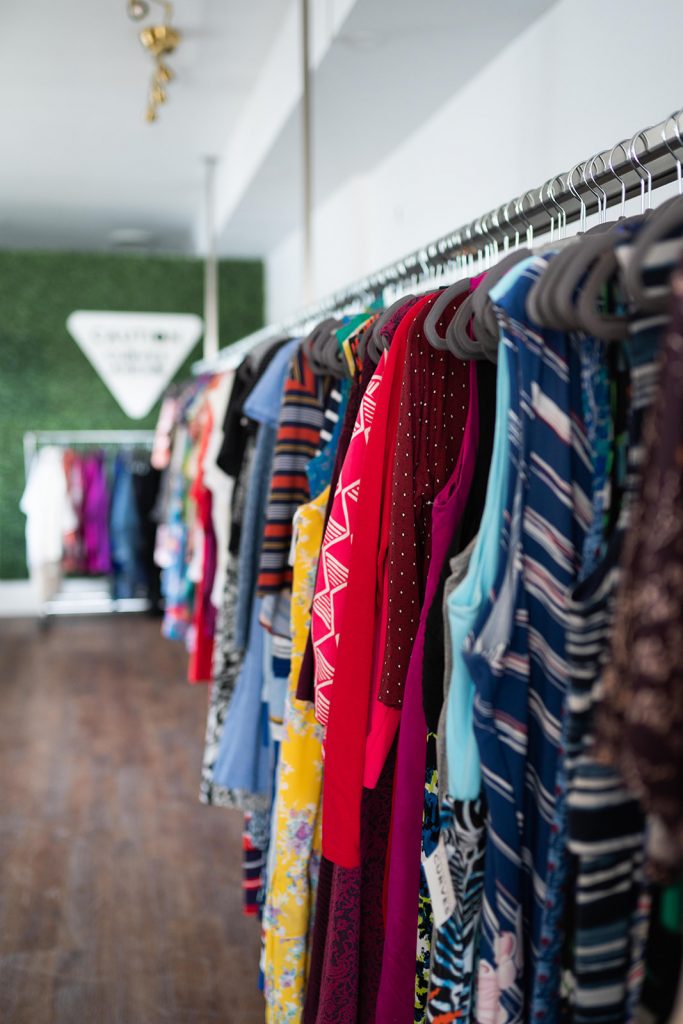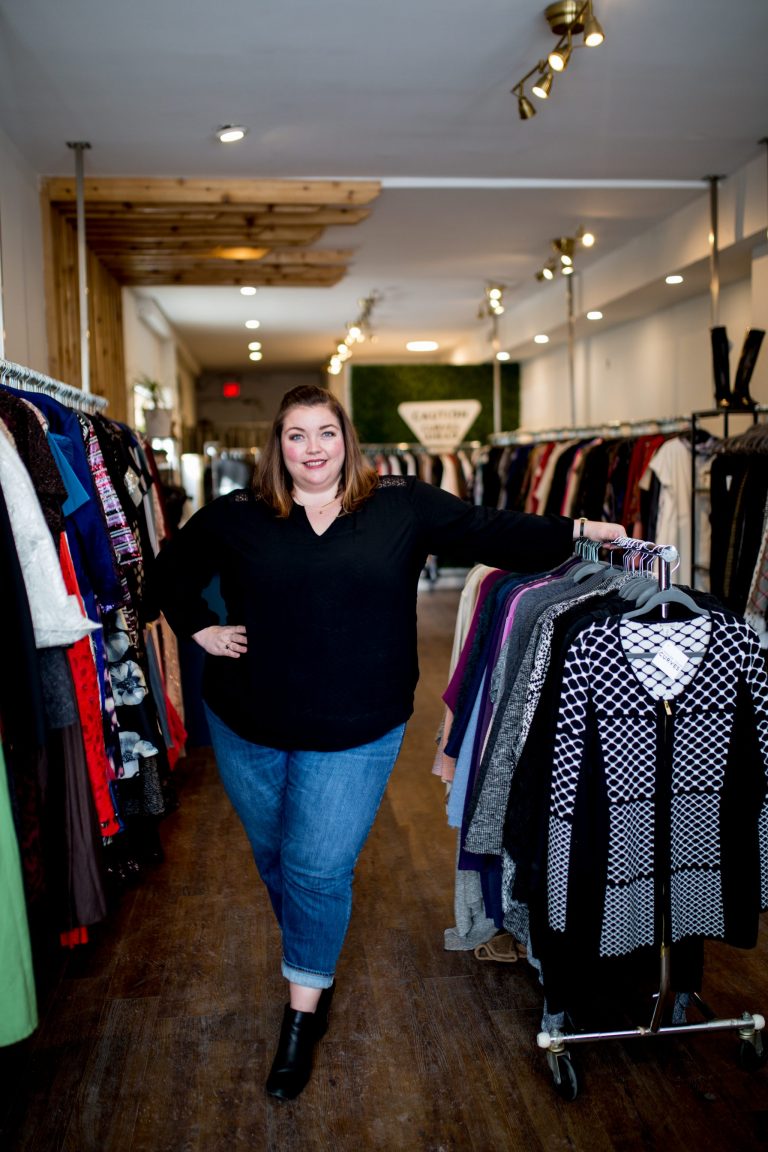For some, shopping second-hand is a way to discover that unique piece that no one else has or find that diamond of a designer item at a reduced cost. For many, shopping second-hand is also a way to consume clothing in a more sustainable way and to give it new life.
But the option to participate in this shift to a more sustainable secondhand approach and to consume new sustainable clothing brands is still only available to those who can find their sizes in local stores.
Carlie Roberts, founder and owner of Consign Your Curves, provides a consignment store option for women sizes 12-32+. When she founded Consign Your Curves initially as a pop-up sale in 2013, the impact of the clothing lifecycle really hit home for her.
“Where would this all go if it wasn’t trying to be repurposed? So when you come to the store … all this could potentially end up in a landfill … if it didn’t have a home to try to go into somebody else’s closet,” Roberts said.
The challenge for those size 12 and above, however, is that most secondhand and consignment stores will not accept their pieces.
“Even though we have all these items, we still don’t have a place to put them.”
Roberts noted that the curvy community would participate in a more sustainable clothing buying cycle if more options were available for selling and purchasing second-hand. Because the community has lacked options for so long, Roberts tends to play the role of educator in the sustainable clothing lifecycle for her customers.
“It’s teaching an entire demographic of women what consignment is because 80 per cent of my consumers have never done it. I would say 10 or 20 have heard of it, but have never been able to participate in that market,” Roberts said.

Roberts also stocks sustainable brands like Girlfriend Collective, one of the few activewear brands that built size-inclusivity into their design from the beginning. Stocking these new sustainable clothing options is important for Roberts because these items are difficult to find second-hand above a size 12.
The price point for sustainable fashion is higher and there are such a limited number of brands in North America that are actually size-inclusive, so when women purchase a piece they tend to keep it until they wear it out. These items, therefore, usually don’t even make it to the consignment market in the first place.
Roberts is hopeful that more women will be able to shop sustainably in the future, as more brands and boutiques stock a more inclusive range of sizes. The curvy community has buying power, and will shop with businesses they can trust to consistently stock their sizes, according to Roberts and she is up for collaboration to make that happen.
“My body is not a trend, you know? So I think if more brands do it right then I think we’ll get there. I’m always wanting to help other businesses … Talk to me. I’ll send people your way.”

